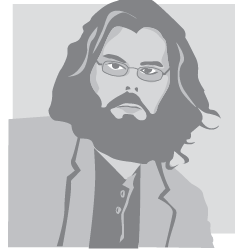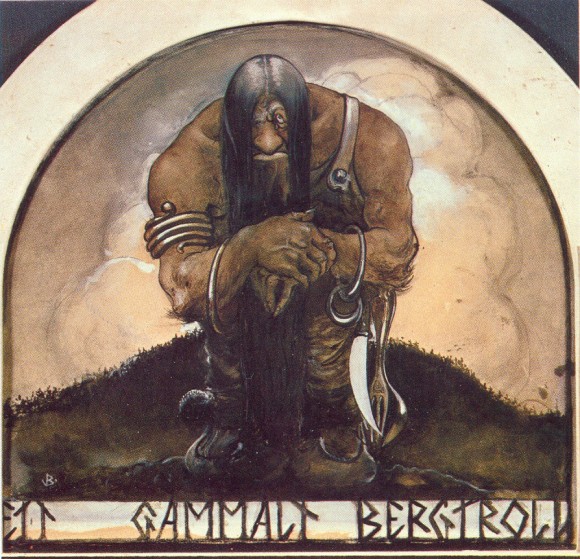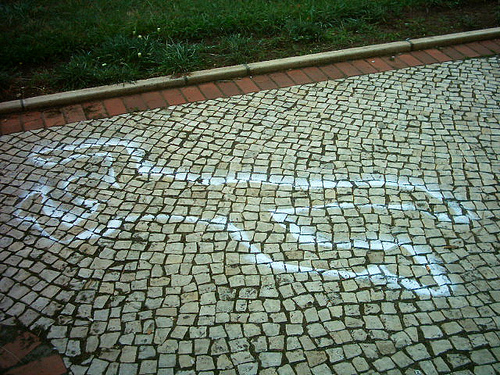 aNewDomain — A student came to me after class. “Dr. Dias,” she said, “you can’t say the things you say. All these white folk don’t want to hear it.”
aNewDomain — A student came to me after class. “Dr. Dias,” she said, “you can’t say the things you say. All these white folk don’t want to hear it.”
Her concern was touching, and it isn’t the first time I’ve heard such a warning. After the shooting of Trayvon Martin, I’ve slowly entered the anti-racism movement. This means looking at a lot of truths that are less than attractive, truths I don’t want to see, either.
A friend, a man I respect greatly who has been in this much longer than me, told me that was all well and good. Just don’t expect to be popular. In the process, a lot of people who you think are your friends are going to turn right around and abandon you.
So far it hasn’t happened. On the other hand, I don’t have that many friends to begin with.
I get good teacher ratings and, when people bother to stop by the office to talk to my boss, they have positive things to say. But I always go home anxious.
Because we look at data, and data is not romantic. It doesn’t shield us from truth, has no regard for our biases, just shines brightly. There is truth in data. Data isn’t the truth but contains it, surrounds it, offers you some kind of view of what’s real.
The world is full of trolls. I just got finished watching “Merchants of Doubt,” an expose on how lobbyists exploit doubt to misinform people, for profit of their clients – in this case, the energy industry. The scientists in the film were threatened, received hate mail, were constantly trolled in every environment. So far, none of them have been murdered.
 In Malcolm X’ biography (as told to Alex Haley), X states more than once that he expects to die by violence. Prophetically, at the end of the book, he writes that both he and the non-violent Dr. King could expect the same end. X said true things and so did King.
In Malcolm X’ biography (as told to Alex Haley), X states more than once that he expects to die by violence. Prophetically, at the end of the book, he writes that both he and the non-violent Dr. King could expect the same end. X said true things and so did King.
In the movement, the same phenomena are in play as in the climate change debate. Indeed oil and coal learned not just from tobacco but from racism deniers, who have also learned, adjusted their tactics.
 There’s a certain amount of privilege in being able to say what is and is not racist. The topic that prompted my student’s concern was the Confederate flag. Someone asked if it were always racist, if a white person might have that flag and not be at all racist.
There’s a certain amount of privilege in being able to say what is and is not racist. The topic that prompted my student’s concern was the Confederate flag. Someone asked if it were always racist, if a white person might have that flag and not be at all racist.
My answer: The data strongly suggest that the more we deny racism, the more racist we actually are. Given the cultural context of that particular flag, while I can’t speak to any given individual, this sounds like the person would be, on average, at least covertly racist.
But do white people get to say what is and is not racist? I mean, what’s the fear here: that black people will suddenly have power over us, get to break up our monolithic culture? Get to ask how to be treated? When someone says, “that word,” or when they say something like “that flag has been used to denigrate my people for centuries,” then we really get to say, “but I don’t mean it that way.” Is the way we mean it in fact more important than the prevailing use of the word or symbol?
In other words, isn’t it at least a little racist to completely deny the experience of the offended party and turn it around by claiming offense ourselves?
A key part of the “MoD” film was a report filed by a scientific agency. Lobbyists copied the report page for page, replacing the conclusions with opposite conclusions. The ultimate in trolling. Legislators could not be expected to tell one from the other. And isn’t that what we have here? This is not an assault on black people, it’s an assault on my white heritage, my flag, my music, my pride. What am I supposed to do, feel shame?
Yeah, maybe.
Maybe take down the flag because it offends people? Because white people don’t get to say what is racist and what isn’t.
Why?
Because we’re the racists.
See, it’s like asking the thief if they committed a crime and believing them when they say, No, no way, stealing isn’t against the law. But it is. If you take money from my wallet, you don’t get to claim you haven’t impoverished me in any way. I am in fact out those dollars.
In other words, when you hurt someone, you have to listen to the one you hurt. You don’t get to say you didn’t hurt them. Only they get to decide that.
So far, nobody has complained. Because, probably, I stick to verifiable facts, truths, data-supported evidence. And because I’m white. White entails privilege. If they did complain, though, well, I’d just have to trust in the good faith of my employers. Me, I’m no King or X or Ghandi to expect real trouble, to have to be paranoid.
When I go home from work anxious, that’s privilege too, isn’t it? Because my big fear isn’t bullet wounds but complaints?
Do you have privilege? Yeah, you probably do. And what will you do with it today? What truths will you tell that others might get shouted down for?
For aNewDomain, I’m Jason Dias.
Inset image one: “Ett gammalt bergtroll” by John Bauer Licensed under Public Domain via Wikimedia Commons.













